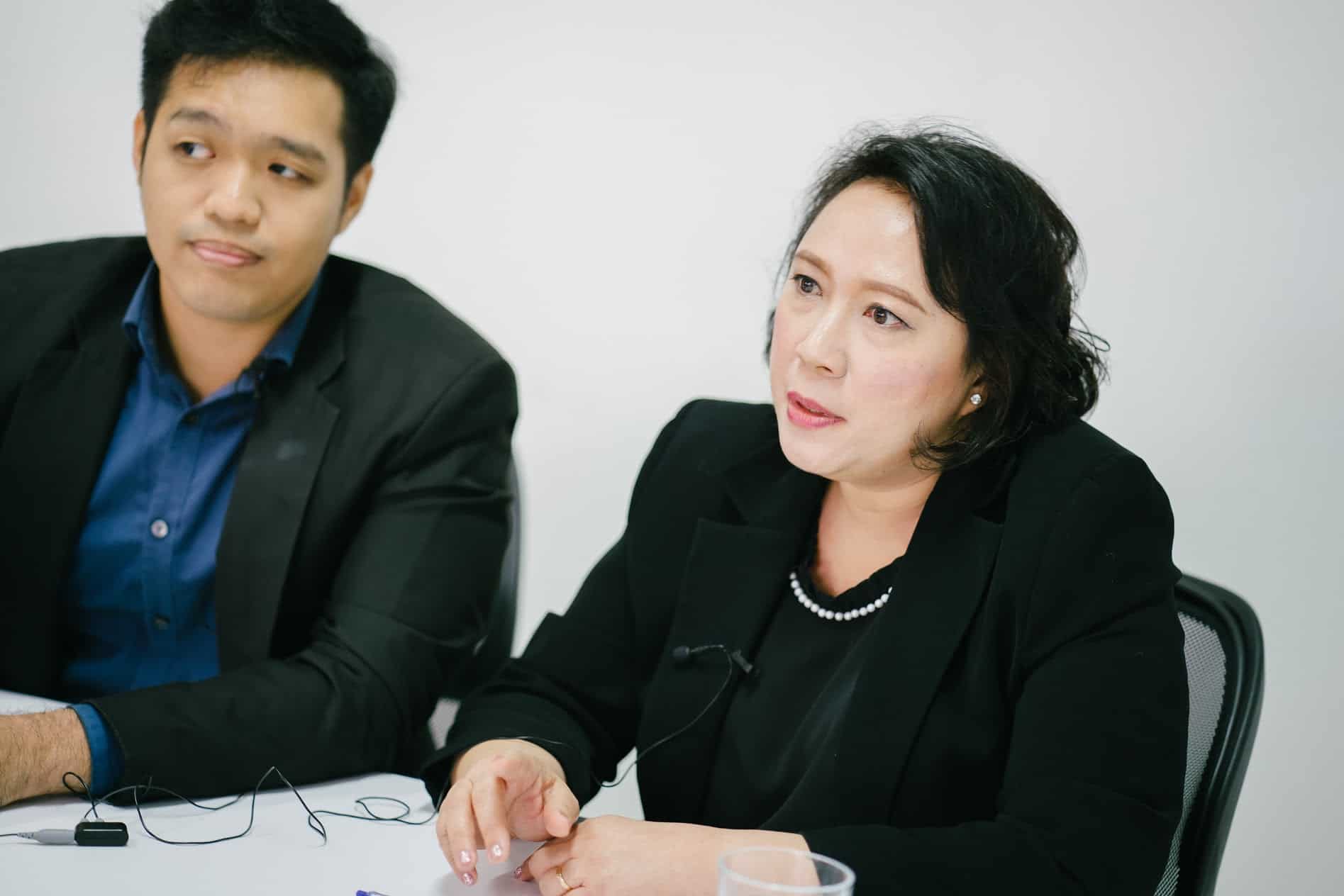In this 3-part series, we take a look at some of the frequently asked questions that we hear from our readers and answered by matrimonial lawyers, Dorothy Chai and Chong Yue-En from Dorothy Chai and Mary Ong Law Practice. In part 1 of this series, we will be looking at divorce proceedings.
Divorce proceedings
Question 1: Can I divorce my spouse right now?
Dorothy – For this question, I will focus on the word “now”. You can divorce your spouse now if you have been married for more than 3 years. In Singapore, you cannot apply for a divorce if you have been married for less than three years unless you have the Court’s permission to do so.
After 3 years of marriage, you can file a claim for a divorce from your spouse at the Family Justice Courts in Singapore. The Court will grant you a divorce if you can fulfill one of the following 5 factors.
- that your spouse has committed adultery,
- that your spouse has behaved in such a way that you cannot reasonably be expected to live with him or her;
- that your spouse has deserted you for a continuous period of at least 2 years immediately preceding the filing of the Writ for a Divorce;
- that you and your spouse have been living separate and apart for a continuous period of at least 3 years immediately preceding the filing of your claim for a Divorce and your spouse consents to the divorce
- that you and your spouse have been living separate and apart for a continuous period of at least 4 years immediately preceding the filing of your claim for a Divorce in the event your spouse does not consent to the divorce
I had received queries where my client asked if separation means that it is compulsory for parties to stay under 2 different roofs. In Singapore, the court recognises that housing or rental may be expensive. This, in turn, could lead to instances whereby parties reside together not because they want to but rather out of necessity. As such, you can still be staying under the same roof and still be deemed as having lived separate and apart in the eyes of the court if you could prove that you had ceased all marital and conjugal relationship with your spouse and had been leading separate lives albeit under the same roof.
Question 2: How can trailing expats spouses proceed with divorce in Singapore?
Dorothy – For an expat to file a claim for a divorce, they first need to satisfy the jurisdiction point of being habitually resident in Singapore for a period of at least 3 years immediately preceding the commencement of the divorce proceedings.
Question 3: Since having a kid, we have lived away from Singapore. I read that to do a divorce in Singapore, you need to live here for at least 6 months or so?
Dorothy – If you are a Singaporean, that would not be an issue and you can file a claim for a divorce. However, if you are a foreigner, you have to satisfy the jurisdiction point of having lived in Singapore for at least three years immediately preceding the commencement of the divorce proceedings before you could file a claim for divorce in the Singapore courts.
Question 4: How long does a divorce proceeding take?
Yue-En – We do get this question often with our clients. Divorce is such an emotional and painful process that the couple wants to end it as soon as they can. As lawyers, we also want to help our clients get through this process quickly and if we can, with less pain. With that said, we have seen hostile cases where it took more than 2 years. The point here is hostility. If there is a lot of going back and forth or points to contest, then it will take more time.
Typically, the entire process takes at least 6 months to a year. There are many situations that can affect the time frame. For example, as a plaintiff (person who file for the divorce), you file for the documents to be drafted and then serve to your spouse but if he is overseas or not responding, in this case, other sets of procedures, e.g. substituted service or dispensation of service, will kick in thereby making the process longer.
Dorothy – Even for uncontested divorce where both parties agree to the terms, it will still take at least 6 months to complete. This is because of the following points:
- First and foremost, a person who intends to file for a claim for a divorce from his/her spouse in Singapore will first need to go for mandatory counselling.
- It is only after the party had gone for the mandatory counselling and obtain the Certificate of Completion from the counselling centre then can the lawyers draft and file the divorce papers in court which will normally take around 1 to 2 weeks or so.
- Further, if you own a HDB flat, the Court also requires parties to obtain certain information from HDB of which HDB is given up to 1 month to revert with their Reply.
- It is only after we had received the reply from HDB then can we file the divorce papers in Court and await for a hearing date from the Court.
- Further to the above, even if the Court had granted an order-in-terms of a party’s claim for a divorce at the hearing, there is still a compulsory 3 months wait from the hearing date before parties can proceed to extract the Final Judgement and be officially divorced.
Yue-En – Speaking about mandatory counselling, Singapore courts are very child focus. Counselling is designed to encourage divorcing couples make informed decisions that prioritise the well-being of children. This is conducted by counsellors from Divorce Support Specialist Agencies (DSSAs). All parents with children are required to attend this programme if they do not have a signed formal agreement pertaining to the children’s custody, care and control and access issues and all other divorce matters.
After attending this session, you will then be issued with a certificate and only with that, can you file a writ of divorce as a plaintiff.
Question 5: Violation of Personal Protection Order – what can I do?
Yue-En – A Personal Protection Order (PPO) is granted should there be cases of family violence against you. I assumed that this question is about the ex-spouse who is still committing family violence, for example, harassment, physical or verbal abuse or even threats to the person’s safety. So, what can one do?
I always advise my clients to walk away, not to engage your ex-spouse go to a safe place and call the police. Violation of a PPO is an offence.
If it continues, I would suggest for the person to apply for a domestic exclusion order (DEO) against her ex-spouse. The DEO has more specific restriction – it excludes or restricts the respondent from entering the applicant’s residence or parts of the residence.
Question 6: How to improve the odds of Singapore Court accepting electronic evidence as authentic, applicable and relevant in the context of SMS, emails and recordings.
Yue-En – Electronic evidence is recognised by the court. Emails are recognised and they can be seen as historical records. About the odds, I think you need to first ask yourself if the electronic evidence will support your claims and help with your case. From my experience, only the relevant ones are important (to your case), like evidence of what happened on that specific day which will directly support your case.
Dorothy – Yes, it is common, we do rely a lot on electronic evidence. My clients had given us emails and screenshots of which we had annexed it in their Affidavits to support their statements. The other party will be invited to disprove the authenticity, i.e. if the evidence has been tampered with or not tampered with.
Need legal assistance on Family Law?
If you have any questions on family law, you can get a Quick Consult with Yue-En or request a quote with Dorothy. With Quick Consult, you can check out in minutes and for a transparent, flat fee of S$49, the lawyers will call you back on the phone within 1-2 days to answer your questions and give you legal advice.
This article is written by Dorothy Chai and Chong Yue-En from Dorothy Chai and Mary Ong Law Practice.
This article does not constitute legal advice or a legal opinion on any matter discussed and, accordingly, it should not be relied upon. It should not be regarded as a comprehensive statement of the law and practice in this area. If you require any advice or information, please speak to a practicing lawyer in your jurisdiction. No individual who is a member, partner, shareholder or consultant of, in or to any constituent part of Interstellar Group Pte. Ltd. accepts or assumes responsibility, or has any liability, to any person in respect of this article.
Continue reading:

